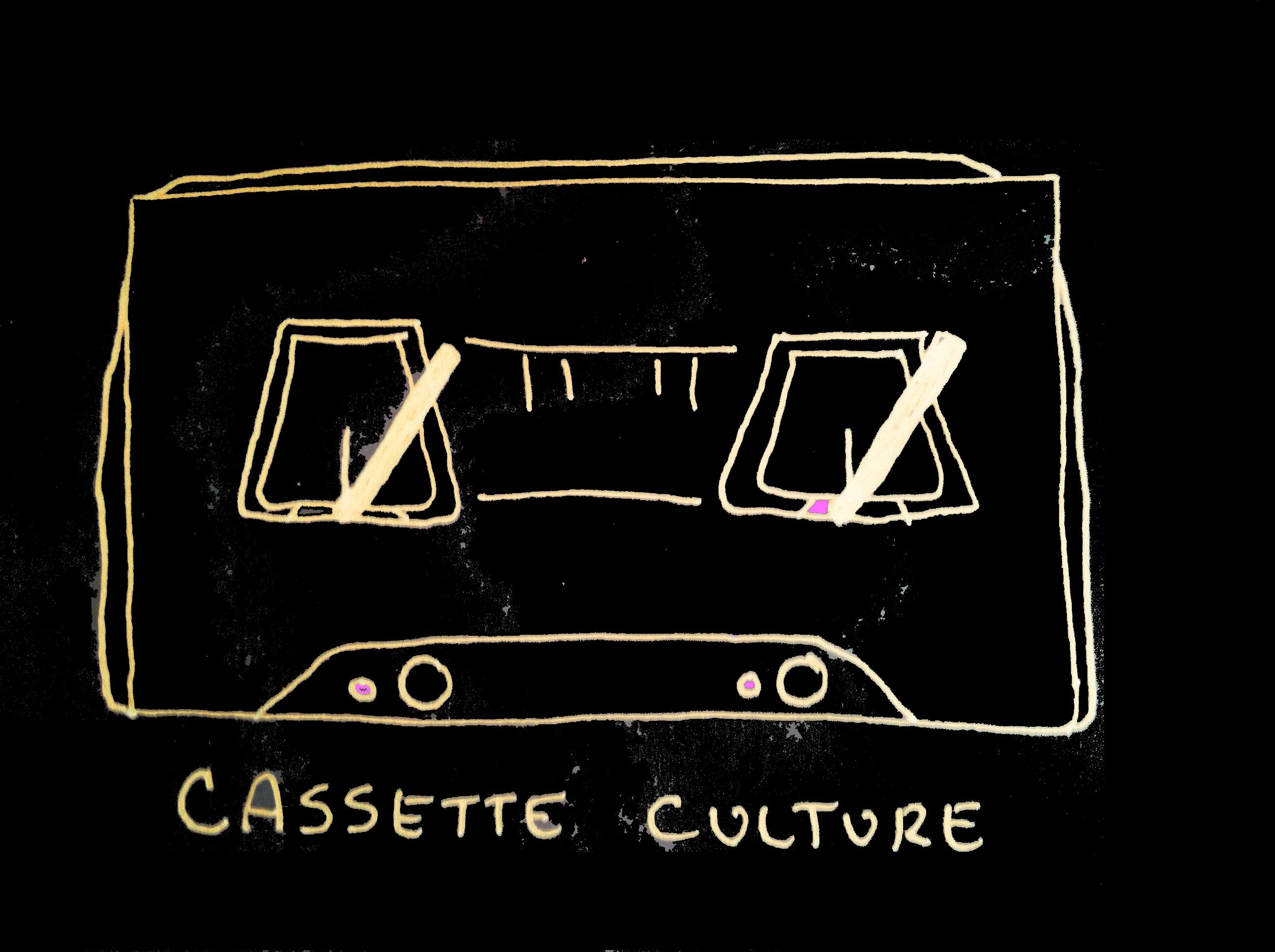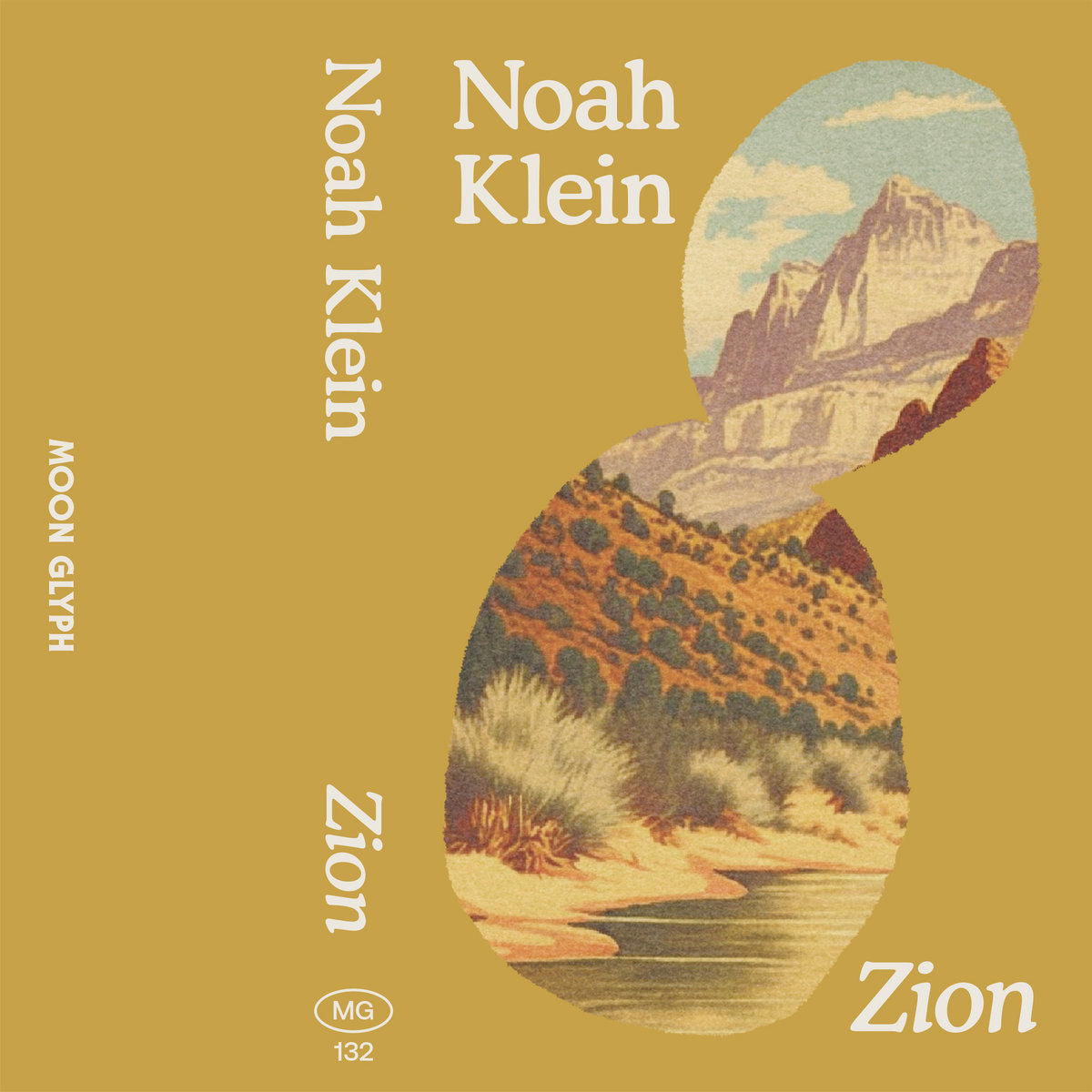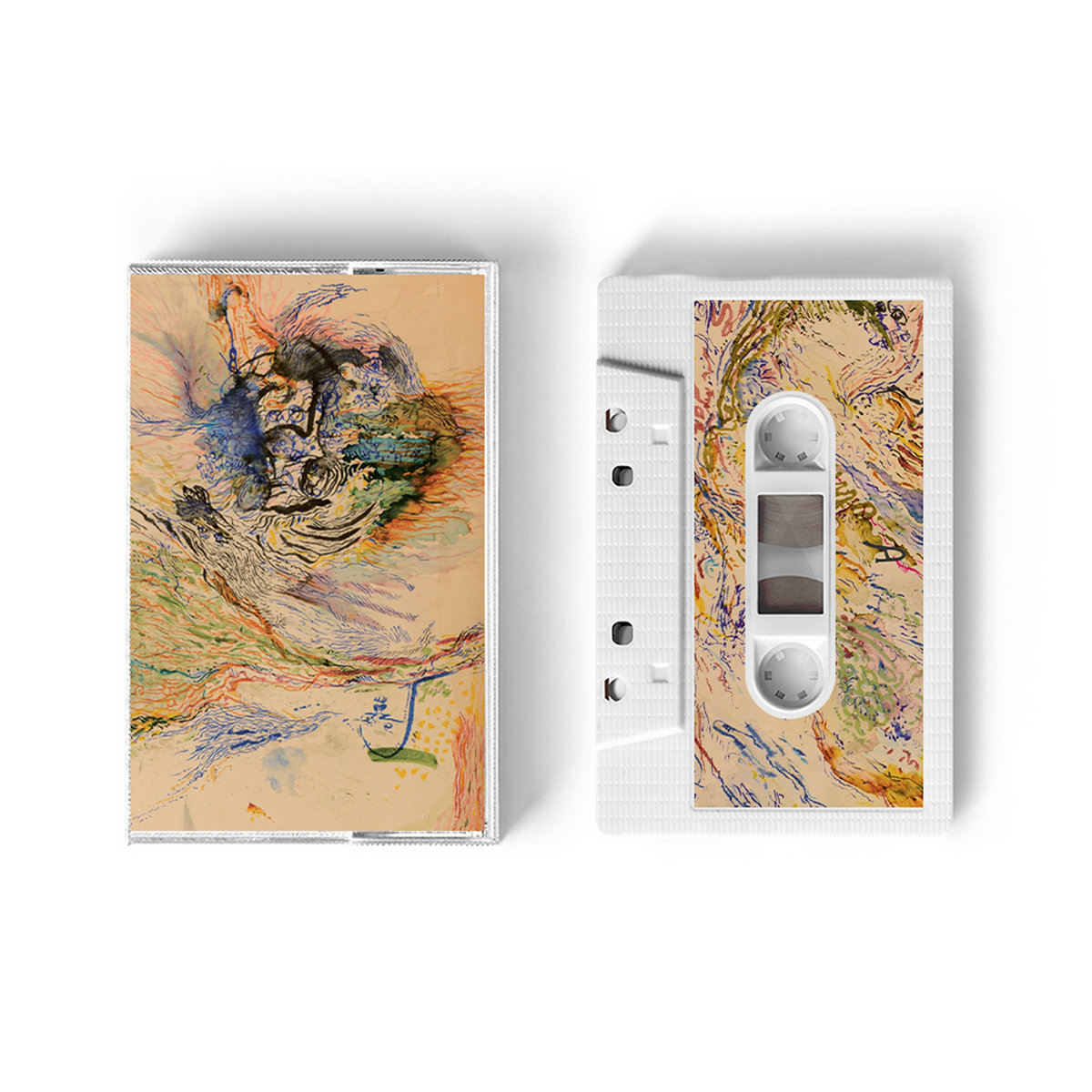Cassette Culture is a monthly column dedicated to exploring the various artists that inhabit the expansive cassette market. Drawing from bands and labels around the world, this column will attempt to highlight some of the best artists and albums from this global community.
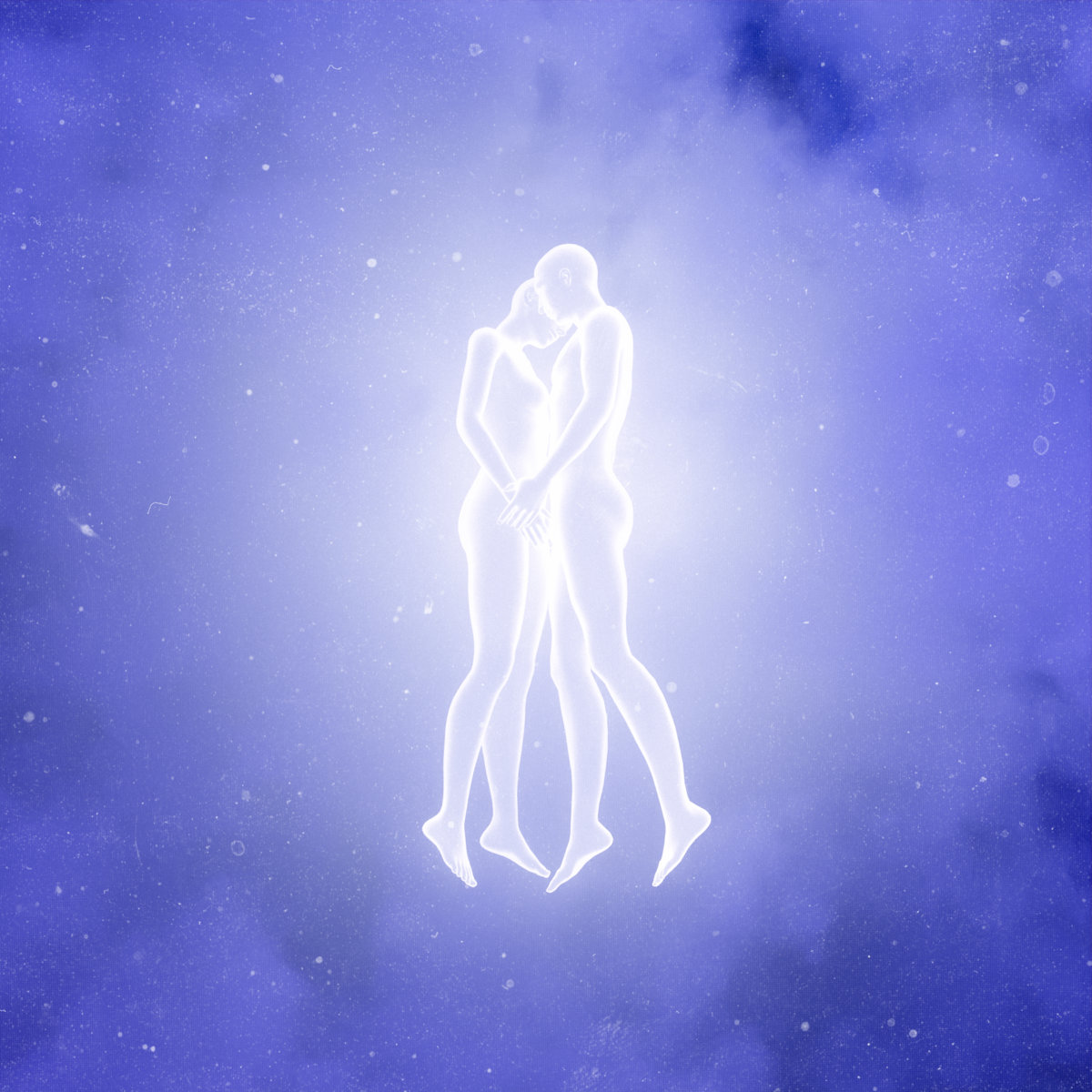 days of blue
days of blue
Forever with You
(Underwater Computing)
Forever with You is the latest release from New York ambient/vaporwave artist days of blue, and it’s a gorgeous experiment in exploring emotional contentment via electronic ephemera. Snaking through your subconscious like some waking dream, the album builds upon elements of new age, chillwave, and the gentle contours of various other ambient aesthetics to create an environment of cushioning synths and melodies that seem to have no beginning or end. It all blurs together in a wash of kaleidoscopic hues and dynamic percussive rhythms – the songs move freely of their own volition, getting the occasional nudge before wandering off to explore some point just out of sight.
You’re never really sure what is real and what is conjured as these songs lay out a series of impressionistic landscapes, vague and gauzy, to be sure, but always moving forward into a dream-state of forgotten memories and emotional revelation. Drifting through these gossamer spaces allows for a period of reflection and allows our attention to focus without interruption. Founded upon the idea of connection — whether physical, mental, or spiritual — the album is a billowing testament to personal awareness and our ability to form meaningful relationships with those around us.
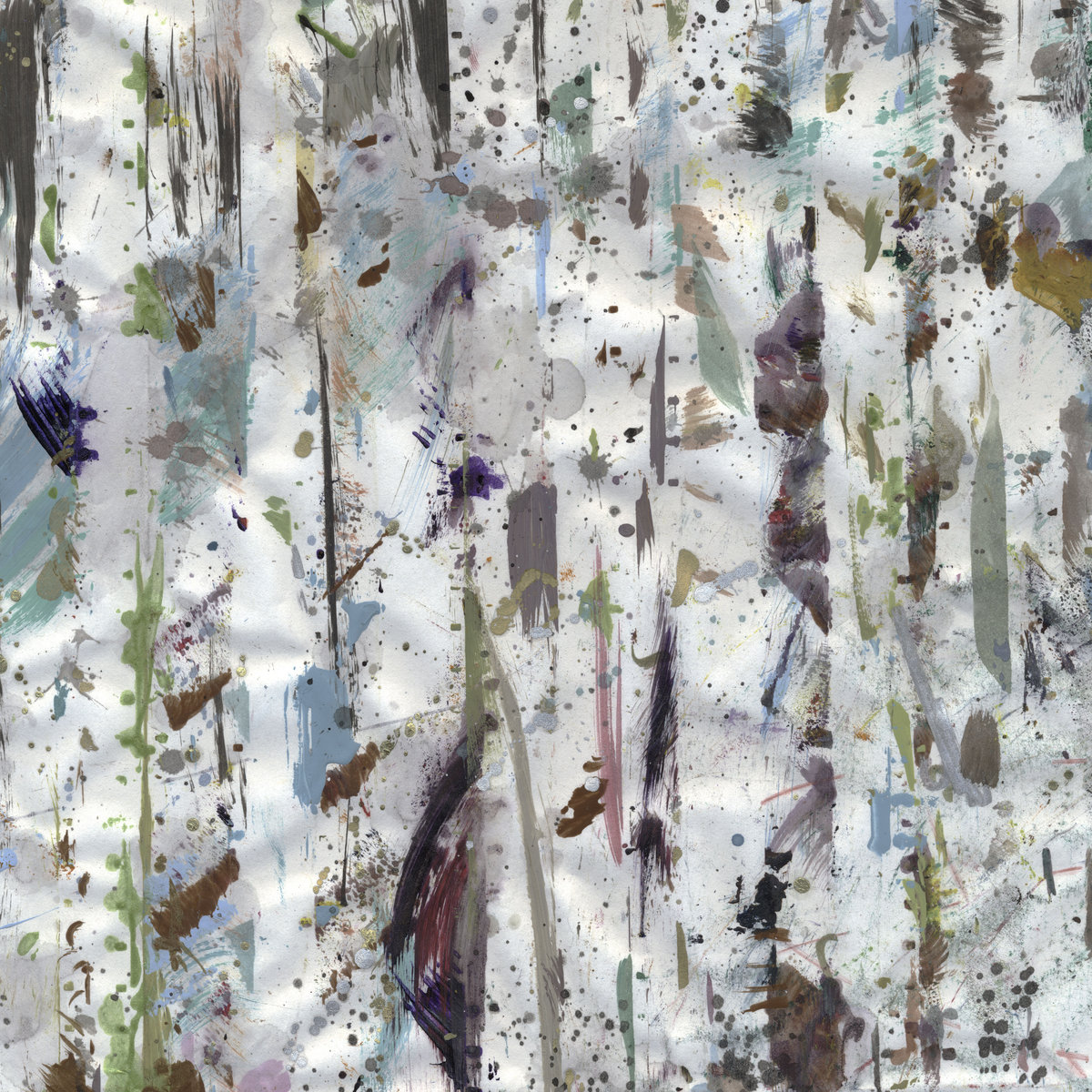 K/S/R + Wind Tide
K/S/R + Wind Tide
Split
(Physical)
Recording as K/S/R, the trio of Abigail Smith, Justin Rhody, and Ben Kujawski make experimental music with a jazzy façade, pulling in bits of atmospheric electronics through a desire to mold them into a freeform construct of indeterminable genre. The same could be said for experimental noise duo Wind Tide, comprised of Andrew Weathers and Gretchen Korsmo, as they approach sound as tactile building blocks and forms to be shifted and carved out when necessary. Occupying the same rhythmic/arrhythmic spaces, it makes sense that New Mexico label Physical would find cause to release a split cassette from these artists.
Offering three untitled pieces, K/S/R lean into the fractured and clattering worlds of avant-noise and jazz deconstruction, reveling in the ruptured melodies and clanking rhythms in which they work. Littered with violin, flute, guitar, percussion and various electronic flourishes, these tracks are wild and engaging, a perfect introduction to the unfiltered creativity at the heart of their music. Wind Tide offer a single longform track called “Turn Up the Periwinkle Sky”, and it only slightly more accessible than the K/S/R songs, blending saxophone, clarinet, synths, and a host of other instruments in service to the band’s improvisational impulses. Together these artists make a fragmented sound that doesn’t alienate its audience. Quite the opposite, as it implores them to completely engage with all its subtle nuances and crooked silhouettes.
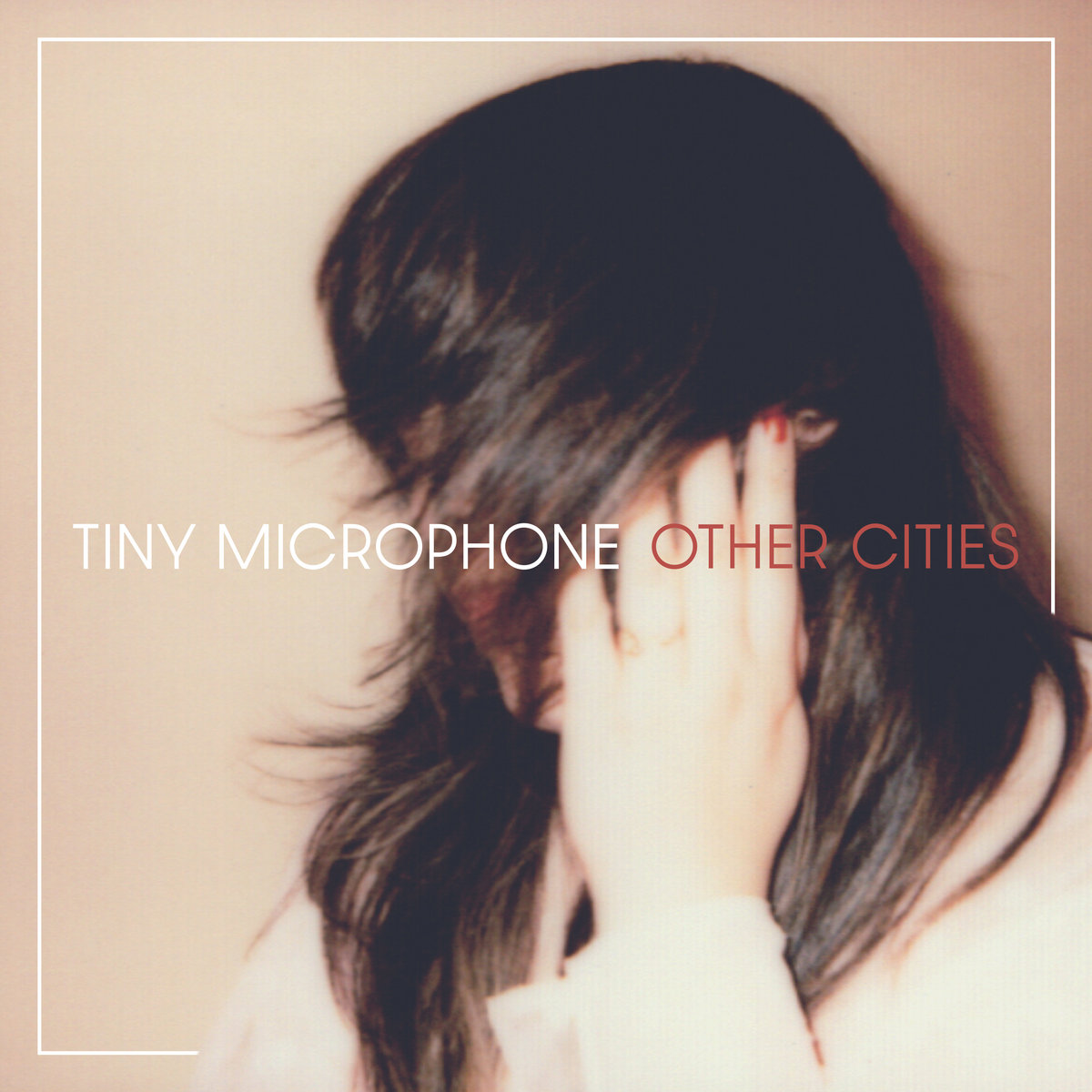 Tiny Microphone
Tiny Microphone
Other Cities
(Self-Released)
Portland songwriter and multi-instrumentalist Kristine Capua – who currently records as Tiny Microphone — first began cataloging her musical impulses to a four-track recorder in an apartment in Chicago in the early 2000’s. Her debut, Home, was originally released on cassette in 2008 and was eventually reissued on CD in 2011, and she continued to explore the bedroom pop echoes floating through her subconscious via her participation in bands like Very Truly Yours and Tiny Fireflies, contributing vocals to other projects like The Bilinda Butchers, The Very Most, and Gold Bears. Her ephemeral brew of indie pop murmurings is buoyant at times while also occasionally exploring darker rhythmic considerations.
Her latest album, Other Cities, was born from relocation and introspection, beginning as demos recorded when she moved from Chicago to Portland, Oregon in 2018. It took some time for these sparkling pop gems to develop properly according to Capua’s own sense of musical alignment, but the 10 tracks that comprise the record catch the light from the sun in dazzling ways, blurring the line between euphoric pop forms and jangling rock edifices. She creates an inviting world of dew-kissed melodies and radiant production, intuiting the function of these rhythmic contours without sacrificing their innate catchiness as well as their tendency to permanently lodge themselves in your head (not that you’re really going to mind if they stick around for a bit).
 Tongue Depressor & Weston Olencki
Tongue Depressor & Weston Olencki
Don’t Tell No Tales Upon Us
(Dinzu Artefacts)
There is a dynamic collision of common affections on the new split tape from Tongue Depressor and Weston Olencki. Don’t Tell No Tales Upon Us is a heady rush of droning rhythms drawn from bagpipes, trombone, bass, pedal steel, and various tape manipulations. The Berlin-based Olencki, formerly a resident of South Carolina, uses his work as a sound artist to connect disparate noises together where viable connections are almost impossible to discern. Henry Birdsey and Zach Rowden form the basis of Tongue Depressor, an outfit dedicated to microtonal tunings, drone-based wanderings, and acoustic/performative opportunities concerning the use of upright/electric bass and violin.
Covering two longform tracks – “Tapping Season” and “If Death Be Printed on His Face” – the album is a spectacle of experimental wonder, reveling in the dissonant joy of arrhythmic associations. Sometimes you can divine specific instruments making their way through the commotion of each song, though there is a blurring of origin that can make identification difficult. Lowering yourself slowly through the waves of discord and ecstatic adaptation, you begin to see the unusual structures being used to highlight the interconnectedness of each sound. Despite their superficial clatter, these musical experiments aren’t designed to distance themselves from their audience; rather, they require active participation from anyone with earshot, demanding attention before sharing their deeper secrets.
The documentation and preservation of the natural world has inspired some truly remarkable music – just listen to Marvin Gaye’s “Mercy Mercy Me (The Ecology)” or Neil Young’s “Natural Beauty”. For Los Angeles musician and naturalist Noah Klein, the desire to capture some small measure of wonder from the environment is what drives his latest collection of ambient musings and field recordings. Named for Zion National Park, Zion features two long-form meditative pieces that channel the inspiration and awe he’s experienced while visiting the Virgin River tributary located within the park. The calming, beatific surroundings are explored through Klein’s flute and bansuri playing, with accompaniment from Sean Conrad on piano, Patrick Shiroishi on saxophone, and Marc Merza on shruti box and lyra-8.
These two open-ended tracks are gorgeous, filled with lilting melodies that express the grandeur of the ecological beauty around us. These musicians are able to cast a spell of gentle revelation and cinematic perspectives. Senses are overrun while we sink further into the music’s welcoming embrace. “This album is a meditation on the impermanence of everything we know to be our present,” Klein explains, “a deep breath on longform geologic process, and an acknowledgement towards the divine eternal process of nature.” And through these songs, we’re given a glimpse of the perpetual cycles of nature and how their impact can be felt on just about every part of our lives. Zion is contemplative and serene and provides a rare opportunity to observe the creation of sound inspired through their surrender to this breathtaking wilderness.
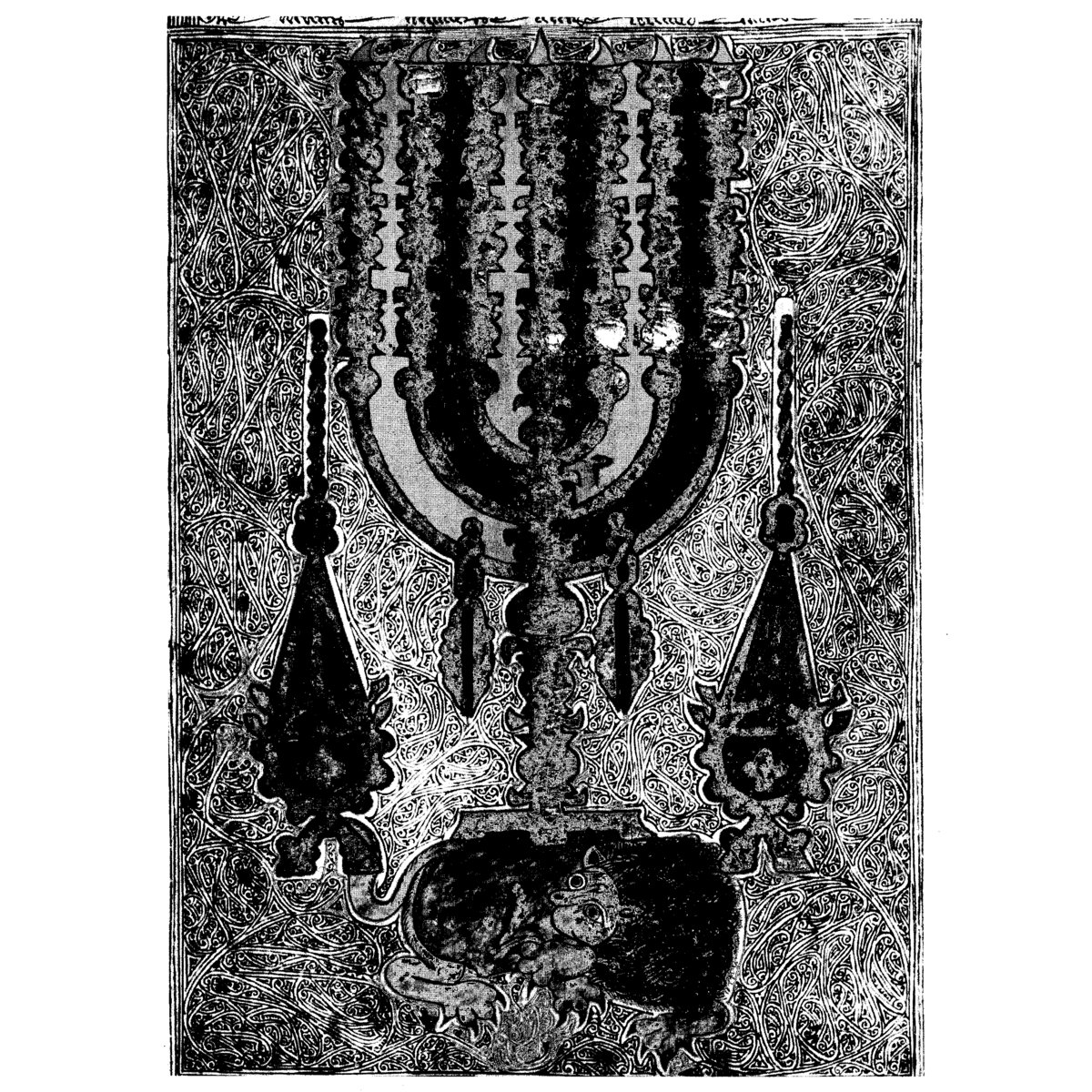 Eniks Cave
Eniks Cave
Seven Heavenly Palaces
(Drongo Tapes)
Recording as Eniks Cave, Seattle musician Zachary Weiner has always made genre dismantlement part of his creative process. With each new release, he further blurs the lines between musical aesthetics and delivers emotional revelations through his use of ambient, jazz, psych, and several other as-yet-unidentified genres that have sprung from his imagination. His latest, a 6-track collection called Seven Heavenly Palaces – seemingly inspired by composer Brian Current’s The Seven Heavenly Halls – is comprised of wonky sax riffs, noisy intersections of instruments, and a sense of reckless rhythmic abandon that lends itself well to the album’s volatile musical immediacy.
Finding a rhythmic equilibrium between drone and jazz, the album doesn’t shy away from exploring some of its creator’s more experimental tendencies. It’s dissonant at times and challenging in its preference for active participation rather than passive observation. With the addition of Mitch Dion on drums, Aine Pearson on upright bass, and Cameron Molyneux on harmonium, Seven Heavenly Palaces feels fleshed out, pulsing with an inner energy, possessing a vibrant awareness of its own emotional connectivity. Recalling the spiritual jazz modes of artists like John Coltrane, Pharoah Sanders, and Albert Ayler, the album is a wonderfully mysterious and spectral look at the various impulses driving these musicians to create the sounds that haunt their collective subconsciouses.
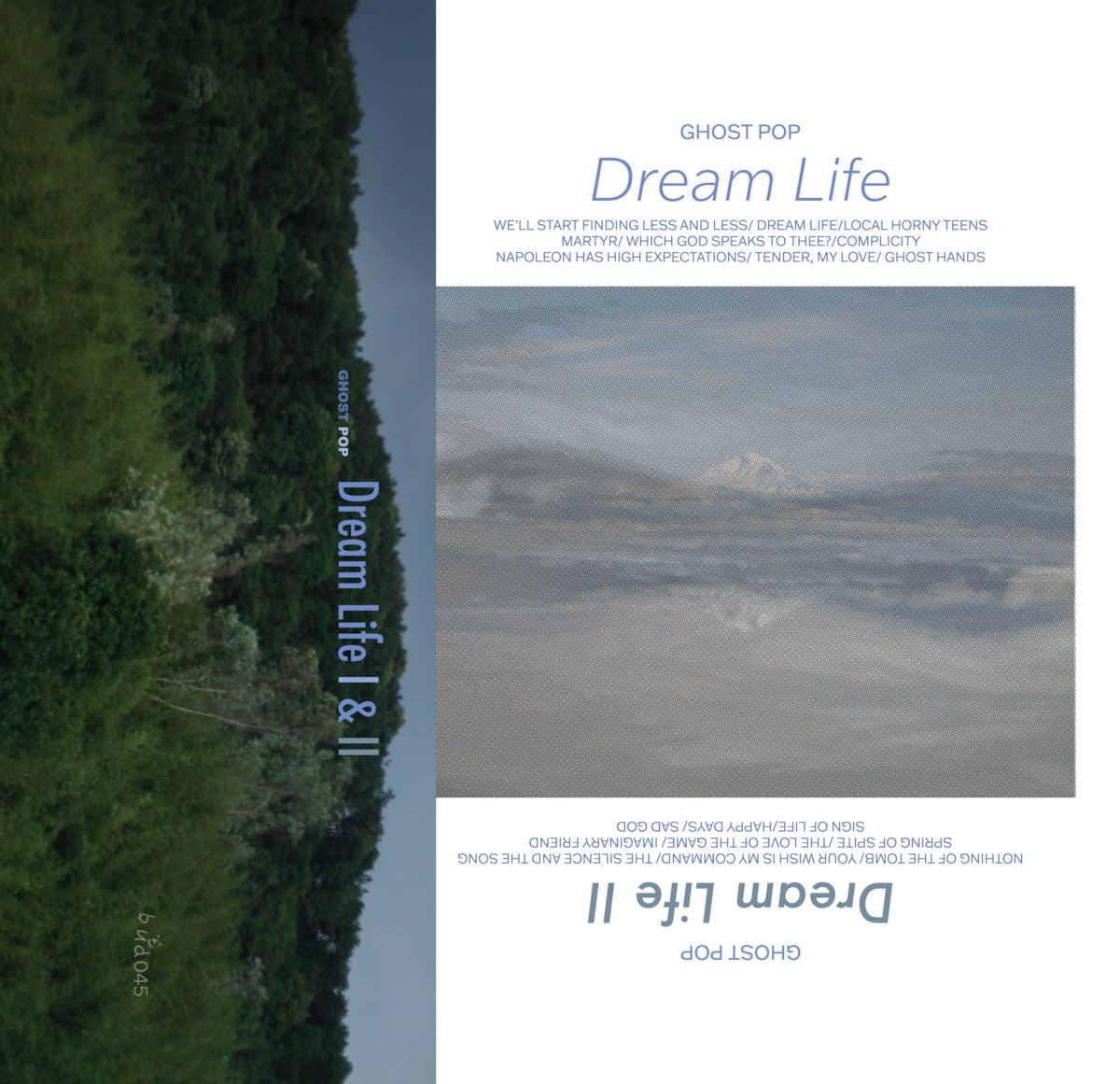 Ghost Pop
Ghost Pop
Dream Life I & II
(Bud Tapes)
The work of experimental pop peddler Aaron Liu doesn’t cling to antiquated genre traditions – it feels loosely-woven, gauzy, and free from the burden of its influences. Under the moniker of Ghost Pop, Liu has developed a sound as haunting as its namesake, blending the blurry inclinations of dream-pop with jangling melodies cloaked in fog and the occasional bit of psychedelia. And on Dream Life I & II, his new double album for Bud Tapes, he leans into the early morning wonder of his opaque pop epiphanies and comes away enlightened and refreshed and ready to reveal new perspectives on his evolving sound. He’s revealed that this album was a way for him to make “dueling alternatives, dueling paths–that a dream could be pursued, lived out, without having to expend the other”, and in that regard, his ambitions were fully realized.
The two halves of the record do create a gentle symbiosis – aiding in understanding each other without compromising either’s individuality. His pop instincts are finely tuned here, letting each section comment upon the other, slowly building a connected world of lo-fi musical awe. Drawing from ’60s sunshine pop, early ‘90s underground indie-pop, and even tracing out the contours of a few yacht rock and folk-rock detours, Dream Life I & II is that rare recording which turns familiar inspirations into uncommon wonder. And Liu seems to do all this without the slightest bit of compromise, dragging his musical affections into the light (or maybe into a slightly overcast morning) and rearranging their base elements into something that explores our ability to reckon with the emotional malleability of pop music.
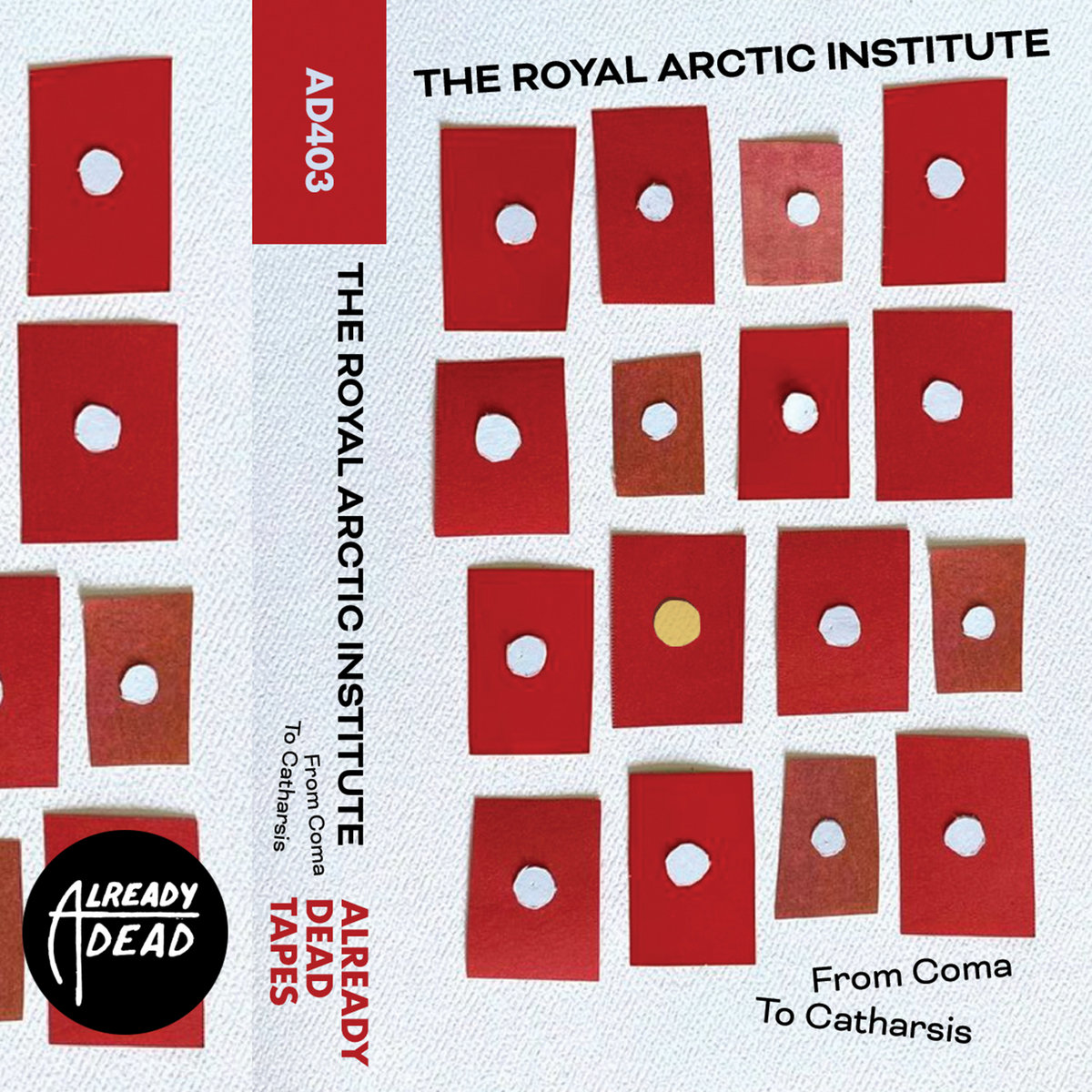 The Royal Arctic Institute
The Royal Arctic Institute
From Coma to Catharsis
(Already Dead Tapes and Records)
Dubbing their work “post-everything”, New York band The Royal Arctic Institute combines the erratic rhythms of jazz with the fragmented eclecticism of post-punk, creating a sound that rides the rails of multiple genres without ever setting down in one for more than a few moments. Their last collection 2021’s “From Catnip to Coma” was produced by James McNew of Yo La Tengo, and they’ve brought him to handle the boards of their new EP, “From Coma to Catharsis”. For these six tracks, the band has approached their inclusive sound with restraint, offering softer sounds, verging on ambient at times – the music unfurling quietly and with little desire to call attention to itself.
Despite its calm demeanor, the album isn’t apathetic when it comes to evoking moments of emotional depth. The guitars shimmer and catch the light just right, bringing to mind early morning hours when the day is still full of potential. The members of the band have over 50 years combined experience playing with artists like Roky Erickson, Arthur Lee, Townes Van Zandt, and Shilpa Ray. And the music is informed of all their histories, molded through their communal affections and driven by a need to express certain sounds drifting through their subconscious. From Coma to Catharsis is fitting companion to their previous full-length and finds the band slowing down to revel in the complexities of their common inspirations, finding purpose and insight through this divination of countless influences.
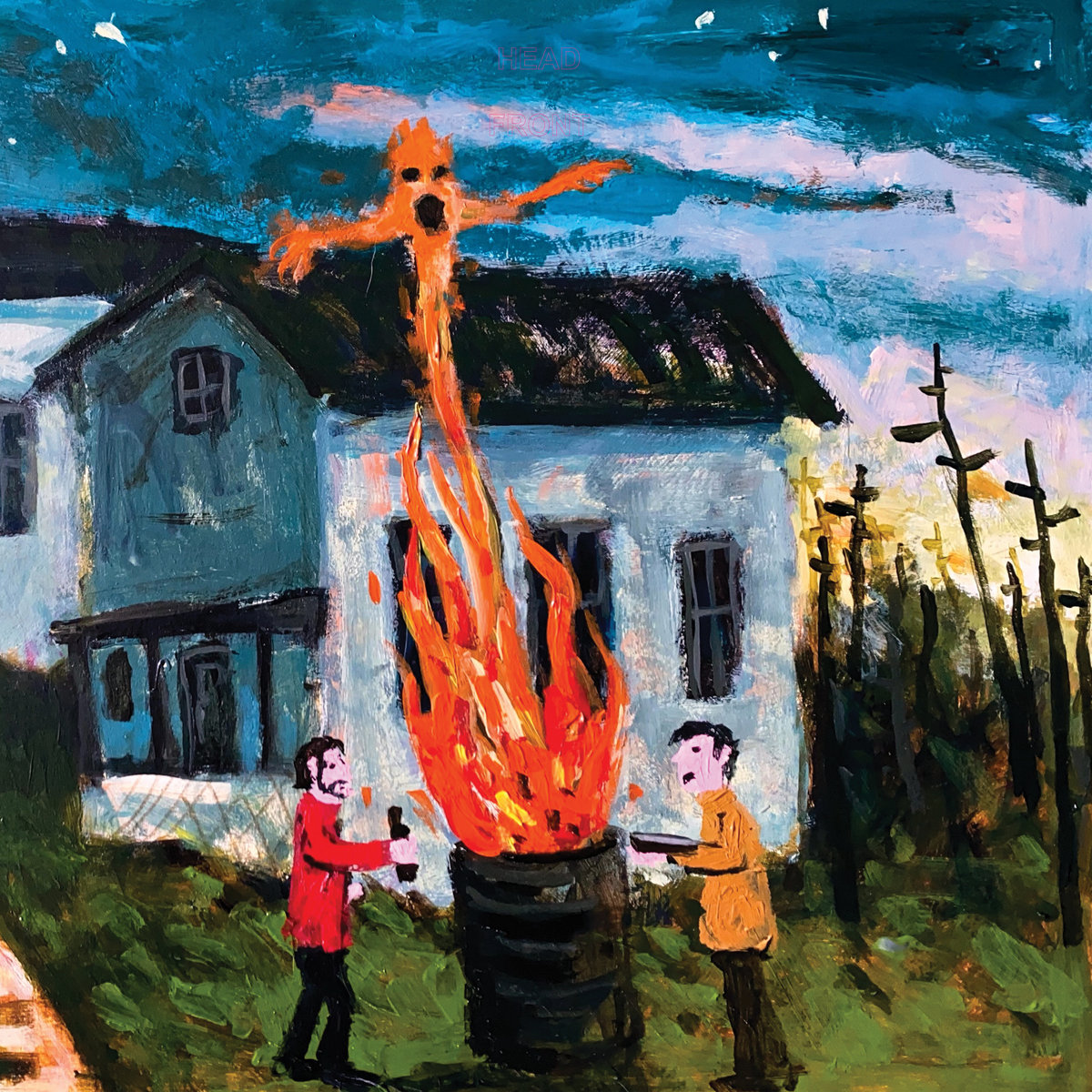 The Drin
The Drin
Today My Friend You Drunk the Venom
(Future Shock)
There’s an intense and immediate reaction that occurs when listening to Today My Friend You Drunk the Venom, the latest album from Cincinnati post-punks The Drin. A feeling of paranoia and haunted anxiety seems to roll over you, washing away everything except the need to escape and find some source of sustainable light. Rusty guitar lines threaten tetanus while phantom voices make darkened invocations as the music seems to collapse in on itself. Echoes of Magazine and The Fall shine through the clatter of their efforts, laying the foundation for their heretical mashups of wiry rhythms and piercing lyrical treatises. The album isn’t merely a collection of angular influences – it’s an anarchic elegy to the ways in which they detonate and reassemble these sounds.
“Peaceful, Easy, Feeling” is a clanging barrage of lo-fi percussion and foreboding vocal intuition while “Stonewallin’” is a garage rock explosion that kicks down the door and sets up shop in your brain. “Walk So Far” recalls classic punk meters and their fiery temperaments, scorching everything it touches. They get a bit noisier and more experimental on “Five and Dime Conjurers” and “The Day (Azoic)”, finding release in combustible rhythms and disintegrating melodies. The band doesn’t care much for concrete narratives, preferring abstract ideations and tangled soundscapes. These songs are stark and abrasive and are fueled by an inner fire that is bound and determined to blacken the surrounding landscapes, offering caustic observations and bitter truths to anyone within earshot.
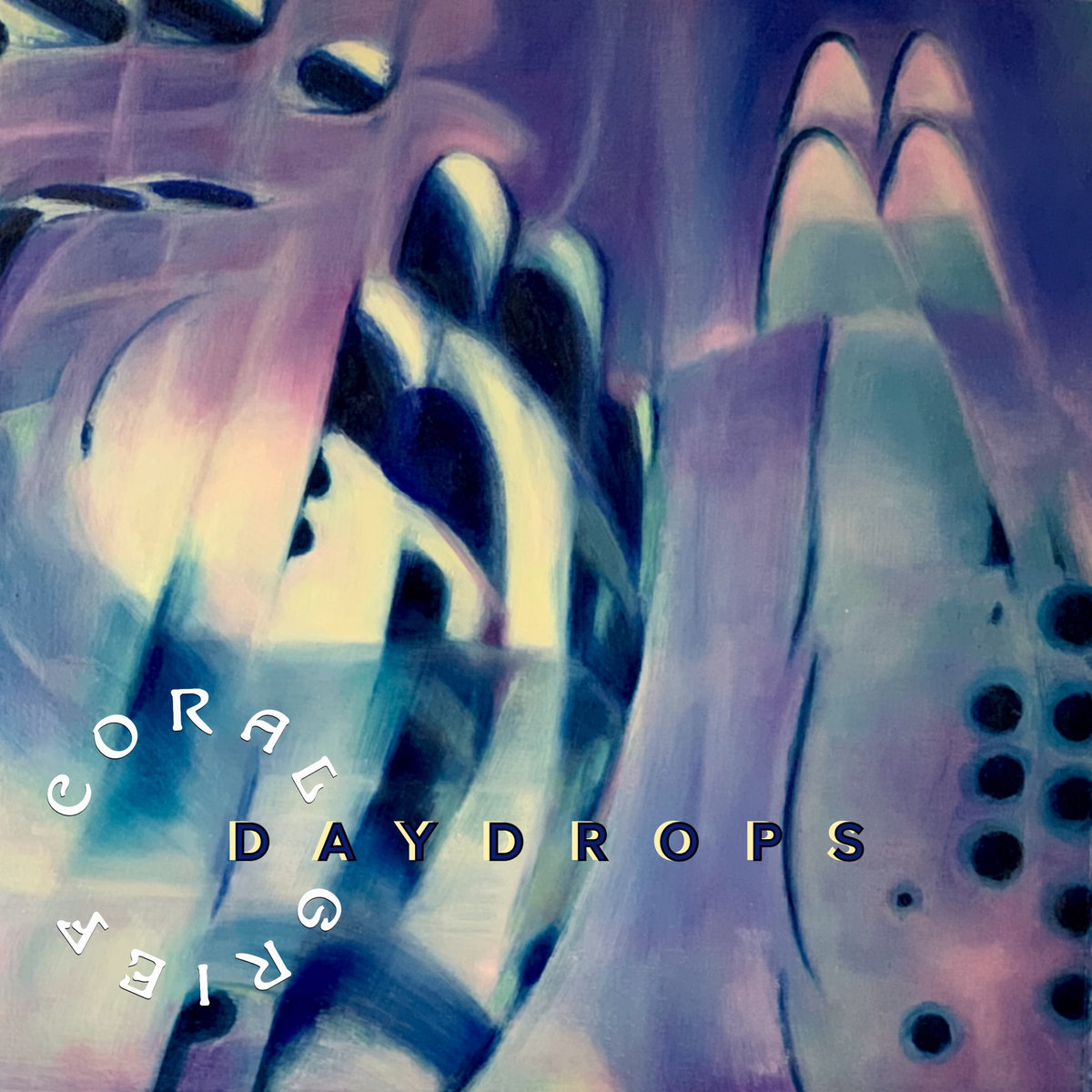 Coral Grief
Coral Grief
Daydrops
(Den Tapes)
Seattle dream-pop outfit Coral Grief play to the strengths of the genre, combining swirling synths, jangling guitars, serpentine basslines, and ephemeral vocals that speak to a certain emotional expressionism. There are no hard edges in their work, only vague contours and gentle shapes nestled in hazy landscapes of beautifully wrought pop music. Their latest EP, Daydrops, recalls the eerie grace of bands like Cocteau Twins and A.R. Kane, dipping into different adaptable aesthetics without losing sight of the overall arc of the music. Singer Lena Farr-Morrissey’s inhabits this world of opaque geographies as a blur of gauzy rhythms surround and envelop her. The interplay between guitarist Sam Fason and drummer Cam Hancock is what allows these sounds to elevate her voice so perfectly into a handful of upper atmospheres.
From the opening melodic smear of “Copycat” to the crystalline guitar lines of the closing title track, this collection finds the band navigating the usual sounds of their dream-pop affections while also pushing against the seams of the genre. At times impermeable and foggy – while becoming clear and direct in its perspectives on occasion — Daydrops balances lucidity with emotional caution, offering space for us to work through our own tangled lives within the comfort of the band’s musical headspace. And just in case you wanted even more from Coral Grief (and who wouldn’t), Den Tapes is pairing the band’s self-titled debut EP on the B-side of this cassette. They work wonderfully as a pair and offer a glimpse at the evolution of a band working through their influences to find some semblance of truth hiding somewhere within the music.
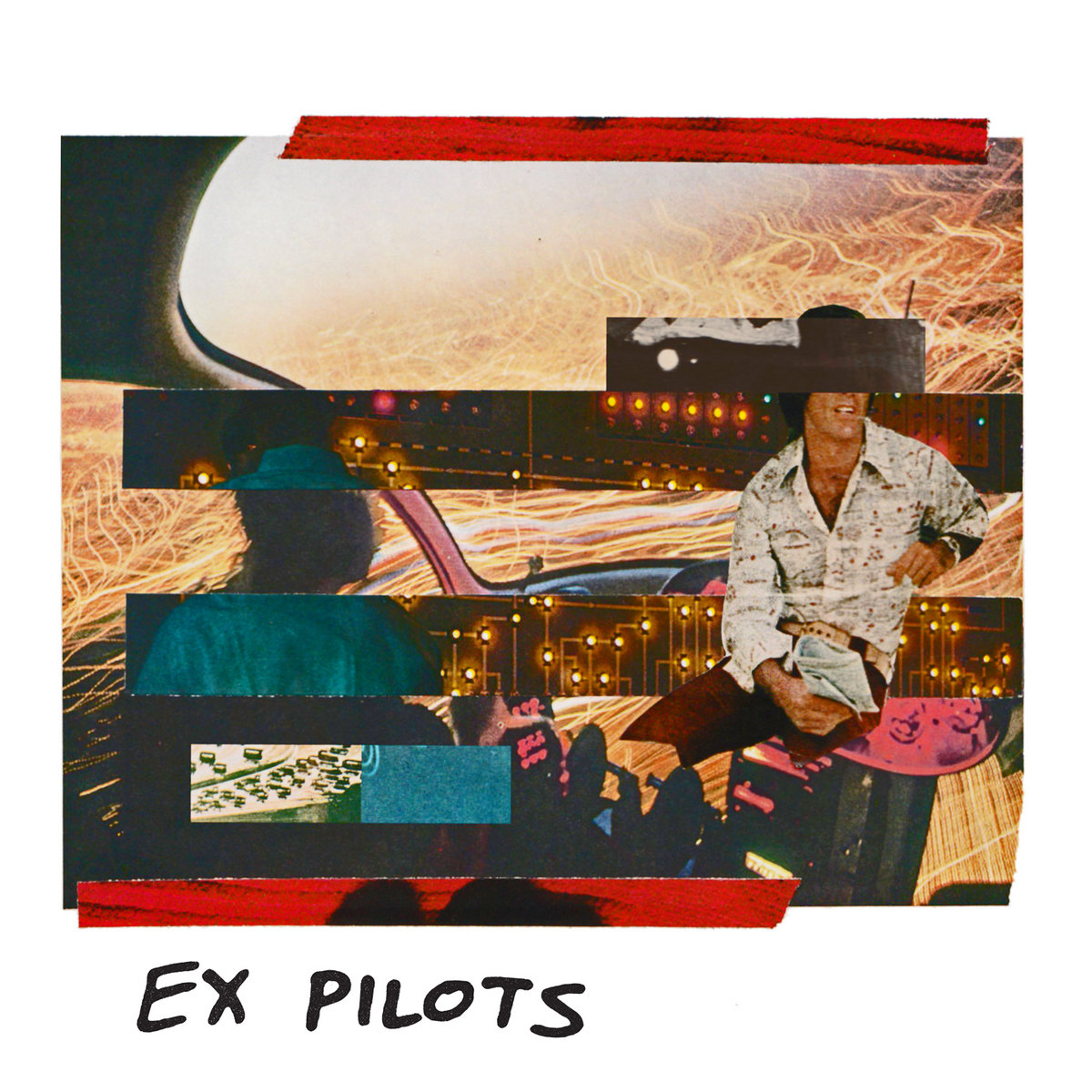 Ex Pilots
Ex Pilots
Ex Pilots
(Smoking Room)
Pittsburgh band Ex Pilots don’t make any effort at hiding their influences – nor should they when you can hear echoes of The Replacements, Rich Kids, and Cheap Trick reverberating throughout their work. They’re punks who wear their hearts on their sleeves and aren’t afraid to get a bit sentimental from time to time – and more than a little melodic. No where is this more evident than on their 2019 self-titled album, recently reissued and remastered for Smoking Room Records. Those songs were all recorded between 2009-2019 in Pittsburgh and Erie, PA and find the band aggressively dismantling the sounds of their musical antecedents while offering new ways to make punk and post-punk aesthetics co-exist with their pop-rock inclinations.
“Dianetics” kicks off the album in flurry of electrified riffs and jackhammer drumming, while its follow-up “Exactly Like You” dials back the fury for a bit of instrumental release – and then we’re back on the run with the fiery “Too Far”. Despite the sharpness of the edges and the band’s tendency to deliver stinging diatribes among caustic arrangements, this collection holds it pop heart close, allowing it to direct and inform each step that they take. On occasion (listen to the extended roar of “Warp” or the ambient-adjacent atmospheres of “The Empty Hall”), they branch and give the songs room to evolve and move past their initial ambitions. Wild and intent on developing a musical language all their own, the band creates these tracks through a bit of rhythmic subterfuge, upending our expectations and delivering a colossal statement on punk rock’s innate malleability.
 Sungod
Sungod
Starscape
(Crash Symbols)
The skies above Texas must be streaked with a thousand psychedelic colors – how else would you explain the kaleidoscopic wonders created by Sungod co-founders Braden Balentine and Michael C. Sharp. Their latest collection, Starscape, is a maximalist’s dream, a swirling compendium of kosmiche atmospherics and uninhibited melodic experimentation. Aided in their crusade by flutist Kristine Reaume and pianist/organist Nick Lombard, the band never wavers in their dedication to all things hallucinogenic and rhythmically divergent. Balentine describes the album as “a purposefully adventurous, ambitious, mess of a record”, and I’d be hard pressed to disagree with him – though this is a mess that you’ll come to adore and appreciate for the way it encourages genre fluidity.
There’s a glorious disorientation to the dissonance explored here; it’s not simply noise for noise’s sake. There is a plan, albeit one that hinges on a cacophony of intermingling influences and personal interpretation. Droning passages give way to plucked guitars and softly spun flute intimations that curl around bouts of discordant percussion. Synths swell and subside, bits of acid house appear and disappear, and the music is intent on exposing you to as much as of its angles as possible in what time it has. At times, the band seems to be studying the effects of celestial disco and pliable dancefloor rhythms on the human body, creating a dissertation on corporeal reaction to banger after experimental banger. But it’s all in service to a wider musical perspective, one that eschews linear narratives and fixates on the amorphous movements of these sensory-altering sounds.
 Emelia Austin
Emelia Austin
From Another Sky
(Anxiety Blanket)
There are innumerable emotional states that exist between joy and grief, and Los Angeles musician Emelia Austin is looking to document more than a few of them on her debut, From Another Sky. She also performs as part of indie rock trio Gal Pal, but this is the first release under her own name. Dealing with self-love, the need to let go of negative influences, and the accepting of those parts of yourself which might be a little bit burnished and worn by time, the album is inundated with complex emotional echoes, the kind that can both shake your heart to pieces and cement your faith in those around you. Her voice seems piped in from some dream experienced years ago. It’s a haunted thing, purposeful but initially hesitant in its own strength – though that changes rather quickly as you fall deeper into the album.
The songs veer between quieter moments of singer-songwriter sorrow to rougher, more anthemic catharses that highlight Austin’s ability to work within a broad spectrum of emotional environments. Distorted guitars revel in the wake of her voice. Strings are plucked and bowed, deep resonances shaking under the weight of elastic melodies and rhythms attuned to the specific vibrations of her heartbeat. Even when the songs favor a more measured approach to complicated topics, she never sacrifices her intense personal gravity in search of some broader understanding. From Another Sky is an intimate and ferocious and occasionally misty-eyed look at the inner workings of our lives and the formidable strength it takes for us to hold it all together.
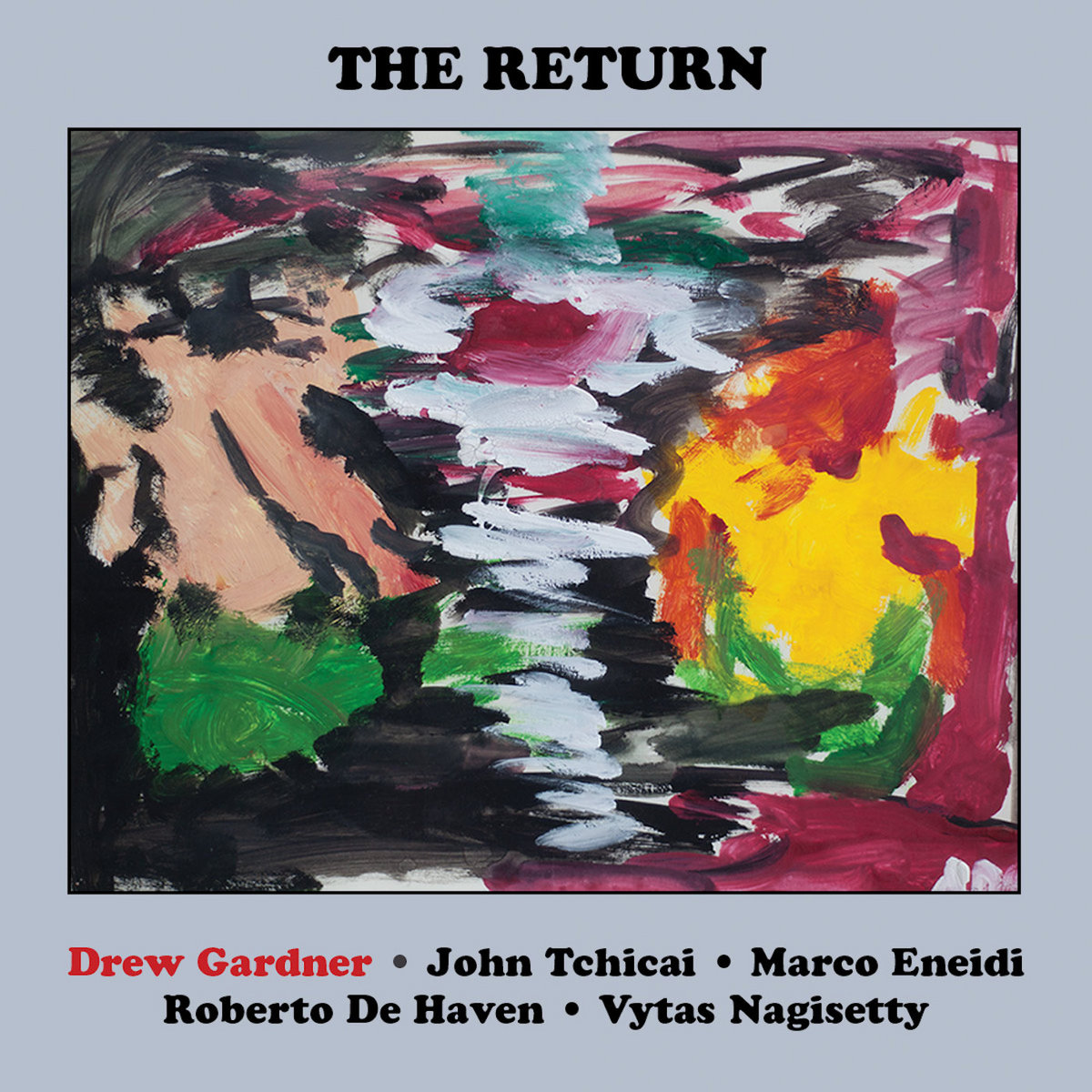 Drew Gardner
Drew Gardner
The Return
(Astral Spirits)
The past can always teach us something our present and can even shape the forces molding our future. Just listen to The Return, the latest release from Elkhorn co-founder/guitarist Drew Gardner, for proof of that. Released under his own name – and featuring bassist Vytas Nagisetty and a saxophone trio of John Tchicai, Marco Eneidi, and Roberto De Haven – the album is culled from a 1995 performance at Guerilla Euphonics Studio in Oakland, CA when Garnder was more focused on percussive aesthetics. The focus is on abstract exploration and the fluidity of their musical influences. But these songs aren’t based around improvisational wanderings; they’re meticulously composed by Gardner to dissect the innate volatility of the genre, offering skronk and jagged melodies in lieu of smoothed-out surfaces and angles.
The Return is challenging, until it isn’t. There’s a moment, and it’s likely to be different for anyone listening, where the pieces just seem to suddenly come together, creating a vision of experimental jazz that commands every ounce of your mental acuity. It could involve the percussive animalism on “The Mirror” or the noir-ish sax lines of the title track, but that one moment hits like a ton of bricks and crystallizes your perception of what the band is attempting, burning their intent into your subconscious as a blueprint for all future jazz renderings. Trying to untangle these complicated rhythms can seem impossible, but if you tune into their wavelength, you soon see the currents within the superficial turmoil, an immersive melodic rapture that fully submerges you in its tidal forces.
 DUP SYS
DUP SYS
Madoromi
(Muzan Editions)
Japanese ambient outfit DUP SYS finds the beauty in cyclical movements on their latest collection of field recordings and droning atmospherics, of how we always return to what we know and what we can imagine. With a title roughly translated to “slumber”, Madoromi does indeed find the band traversing somnambulic melodies and nocturnal impulses. These shimmering ambient wonders billow and unfurl with ease, synths stretching out for miles without needless interference. The songs are soothing, but it’s an active comfort, one that requires a bit of work on our end. We can succumb to the drowsy nature of this work, or we can find meaning in its gauzy instrumental passages. Despite its superficial feelings of rest and relaxation, the album possesses a revelatory sense of spatial awareness in the way it approaches these winding ambient narratives.
Madoromi also sets itself apart from its ambient brethren through its use of dynamism, a quality employed with some rarity in the works of those wandering these musical realms. The complexity is what really elevates these songs, the feeling of immersion that reveals itself as the album unfolds. It’s not a case of competing components so much as it shows how each piece builds upon the previous ones. The synths rise and fall is beautiful sheets. Plinking electronics burrow around in the background. Odd sounds used to suggest intricate percussive embellishments appear and then vanish without explanation. It’s a fascinating collection that never offers concrete reasons for why it operates the way that it does – it simply exists and glides along, leaving some intriguing echoes in its wake.
 Vinny Golia / Patrick Shiroishi / Catherine Sikora / Nick Skrowaczewski / Andrew Wedman / Stanley Jason Zappa
Vinny Golia / Patrick Shiroishi / Catherine Sikora / Nick Skrowaczewski / Andrew Wedman / Stanley Jason Zappa
HelMel
(Fort Evil Fruit)
One of the great abilities of music is the way in which it brings likeminded people together, whether it’s on stage or out in the audience. This communal nature of sound is what drives every musician to excavate the noise drifting around in their heads. The latest cassette from Irish label Fort Evil Fruit finds saxophonists Vinny Golia, Patrick Shiroishi, Stanley Jason Zappa, and Catherine Sikora merging their cacophony with pianist Andrew Wedman and drummer Nick Skrowaczewski, creating a righteous noise that commands your attention. A detailed snapshot of a session at Helmel Studios in Los Angeles last February, HelMel is a 73-minute journey into the twisting connective tissue that exists between these musicians and the ways in which they join them to form a blistering eruption of jazz experimentalism.
The sounds here remind me of some of the more abrasive ones that Tom Waits has offered in the past, creating a kind of apocalyptic jook joint atmosphere where lives are gambled away, and truth is splattered against the walls in shades of grey and black. You certainly don’t want to be down on your luck when the bill comes due. These musicians paint in discordant hues, letting each brash declaration fill in the details of the overarching story. Or you can accept that it’s a big miasma of sound and inspiration with unknowable intentions. Either way, the album is a compelling look into the dynamics inherent to these type of compositions, filled with open-ended melodies and rhythms that collapse and reform and collapse again without regard for traditional musical structures.
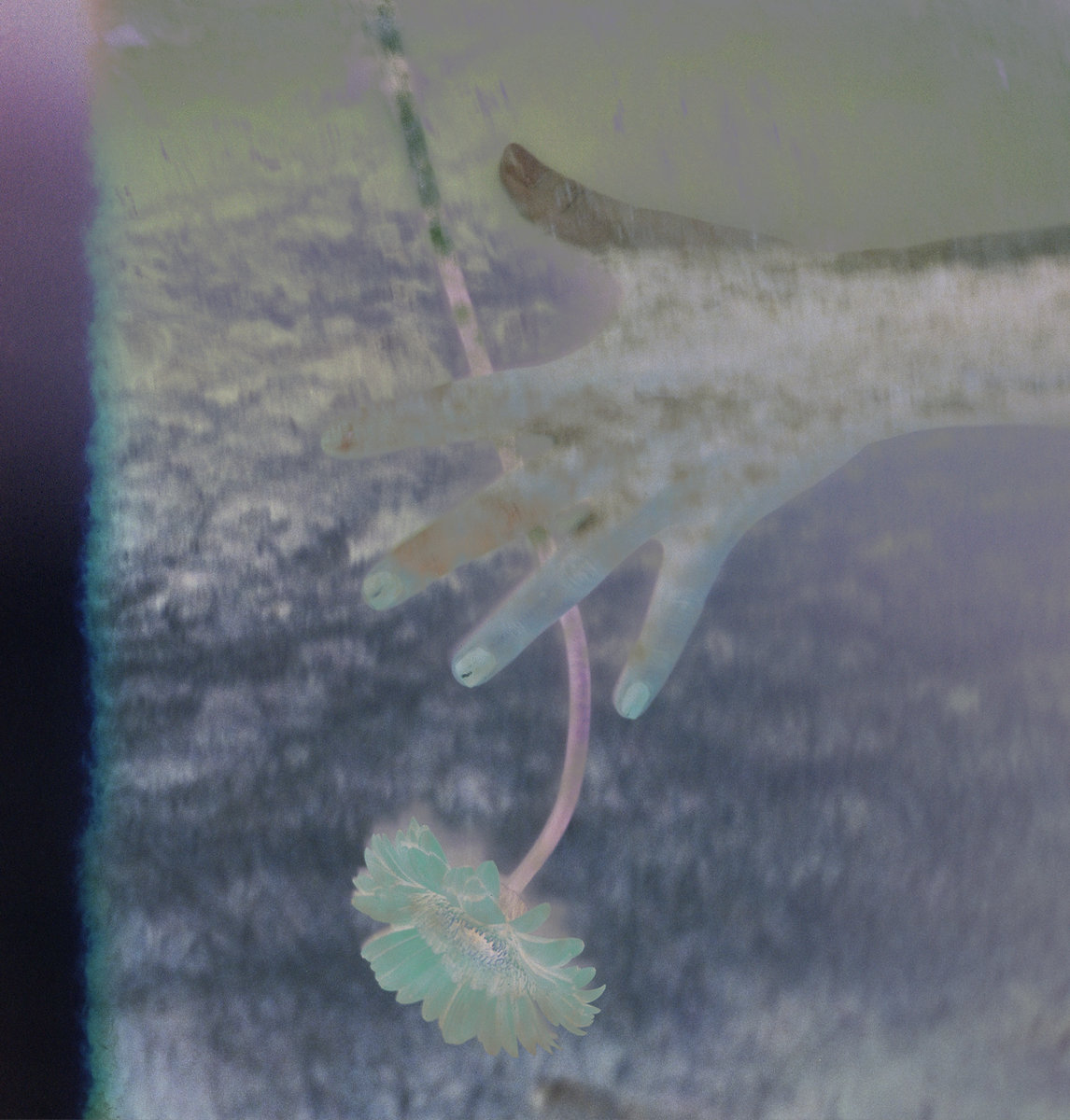 Katie Gerardine O’Neill
Katie Gerardine O’Neill
Into the Beyond
(Cruel Nature Records)
Dublin musician Katie Gerardine O’Neill has always had a fascination with things that can’t be explained, an affection for mysteries beyond our understanding. And she brings this sense of curiosity and wonder to her work, a mixture of ambient awe and art-pop experimentalism. Her latest release, Into the Beyond, doesn’t hide its intentions to explore ideas that feel completely out of our hands, things that can’t be adequately reconciled in our corporeal realm. Utilizing a variety of tape recorders, reel-to-reel archival tapes, digital software, and other sound manipulation techniques, she further develops her sonic identity, finding nuance and revelation while investigating emotional ambiguities and our need to understand aspects of our lives that often defy comprehension.
Whether it’s the string-washed beauty of opener “10 Voices” or the mutated vocal refrains on “Vacuum” – or the rough-hewn grace expressed through “Animal” — O’Neill is always looking for a unique angle from which to approach these intimate ruminations on overcoming emotional hesitancy while reinforcing our inner defenses. The songs all feel as though they’re being stretched to their limits, overflowing with creative adaptations and littered with the dismantled parts of her influences. There are brief flashes of sax, flute and other interstitial embellishments which gives the music a deeper resonance, a burnished echo that recalls the irregular loveliness of musique concrete. Into the Beyond doesn’t hold its ambitions up for inspection – it simply plays to O’Neill’s strengths as a composer of complicated arrhythmic constructs and melodic deconstruction.
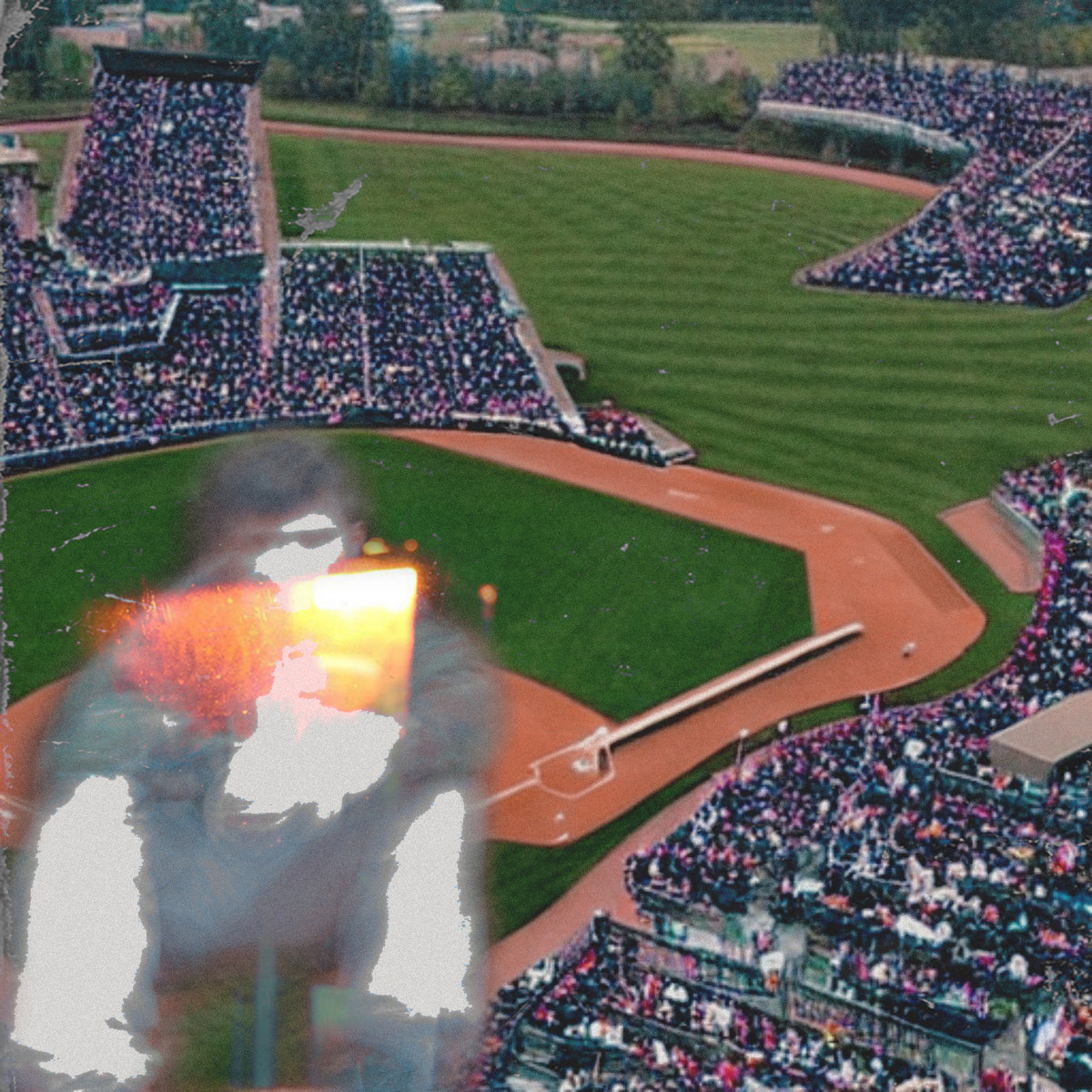 Tombstone Poetry
Tombstone Poetry
World Series Hangover
(Candlepin Records)
When attempting to escape from the darkness of the world, some people turn to vice while others immerse themselves in unbalanced relationships or spend untold time trying to understand the reasons behind seemingly random misfortune. For Asheville musician Caelan Burris – currently recording music as Tombstone Poetry – this idea of evading reality and the emotional fallout of heartache, disappointment, and unfulfilled purpose is addressed through music, through visceral accounts of dependence on people and addictions to various substances. His new EP, World Series Hangover, allows him to address these different forms of abuse while trying to understand the underlying emotional struggles which can drive people into their deceptive comforts.
Each track here addresses a different method of physical or mental avoidance, veering between alt-country rhythms (“Lead”), indie rock tenacity (“World Series Hangover”), and fuzzed-up pop histories (“Glimpse”). Burris explains that “this record was a meditative experience that led to a deeper understanding of my personal faults and grounded reflection on how to heal from past traumas.” Starkly rendered at times but possessing a considerable inner strength, the album peers into the consequences of our shortcomings and finds a way toward forgiveness and reconciliation. He isn’t really interested in providing hard answers to questions about how we react to countless emotional stimuli – he’s far more concerned with personal accountability and the ways in which we process past trauma as a means of acceptance and personal growth.
For OPLA – the duo of Warsaw-based percussionist Hubert Zemler and Polish guitarist-composer Piotr Bukowski – the past provides a very strong influence on the foundations of their work. On their latest album, GTI, the duo seeks to interpret traditional Polish dances, such as the oberek, while also offering tripartite metros adorned with various electronic ephemera. They peer into their country’s folk music histories and are able to adapt these sounds into surreal and circuital soundscapes holding deep reverence for their inspirations. Though they’re not dancefloor bangers in any recognizable sense, these songs do manifest uncommon rhythmic movements. Experimental in their tendency to measure success through abstract metrics, Zemler and Bukowski have created a fascinating and utterly unique perspective on the tangled roots of these specific musical forms.
The general austerity of the music is quite effective too, as it focuses your attention on the ways in which these two musicians have gone about the process of adapting Polish aural traditions into a series of avant-garde experiments. The droning repetition underscores the ways in which we overlook and become oblivious to the lineages of different musical conventions, opting for immediate gratification over patient analysis. Slightly too dynamic to be seen as strictly ambient (though there are moments when a case could be made), these tracks make good use of minimal percussion, plinking electronics, and staticky backgrounds — and it’s all in service to their chaotic outlook on the inevitable modernization of traditional musical systems and the means by which we amend the boundaries around these melodic customs.
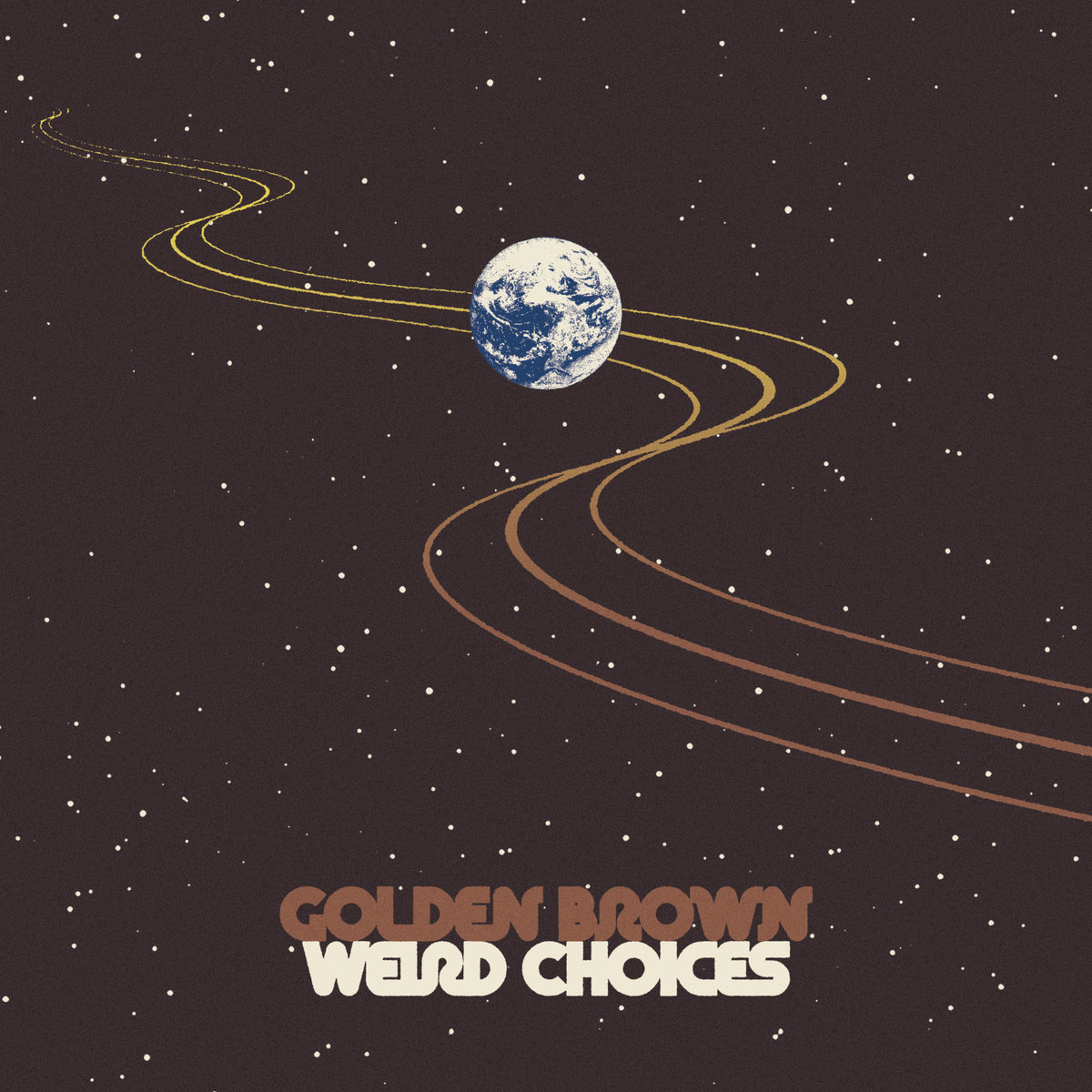 Golden Brown
Golden Brown
Weird Choices
(Inner Islands)
Colorado musician Stefan Beck has always been able to make his guitar reveal multitudes through his proficient fingerstyle picking and mournful slide guitar. Time starts to unravel as the notes are drawn out, elongated and stretched beyond their normal range. His work is dreamy but marked by moments of intense emotional exposure. On his latest album, Weird Choices, he shifts his focus a bit to include more electronic flourishes, highlighting the unpredictable nature of the world and its influences on his ability to maintain a clear headspace. He specifically played around with different durations, explaining, “I started a practice of making these miniatures – one- to two-minute-long songs that still felt fully formed and expressive but simple and concise.”
He also took inspiration from Monica Byrne’s novel The Actual Star, which told of climate change-induced devastation and how society adapted to the earth’s new environmental realities. And while it documents the hard lives of the survivors, Beck finds hope in their struggles, seeing more possibility for renewal in those bleak circumstances than he does in our current political and social settings. These songs balance between shorter, more experimental divergences and longer, more improvisational journeys. There’s a dreamlike quality to the music, a peacefulness that settles in and allows you to confront the often-troubled certainties around you. The album’s title is a nod to the strange choices we must make each day without realizing the absurdity of our limited options. Weird Choices maintains an equilibrium between calming introspection and jittery circuital perspectives and effortlessly functions as a compelling piece of impressionistic art.

